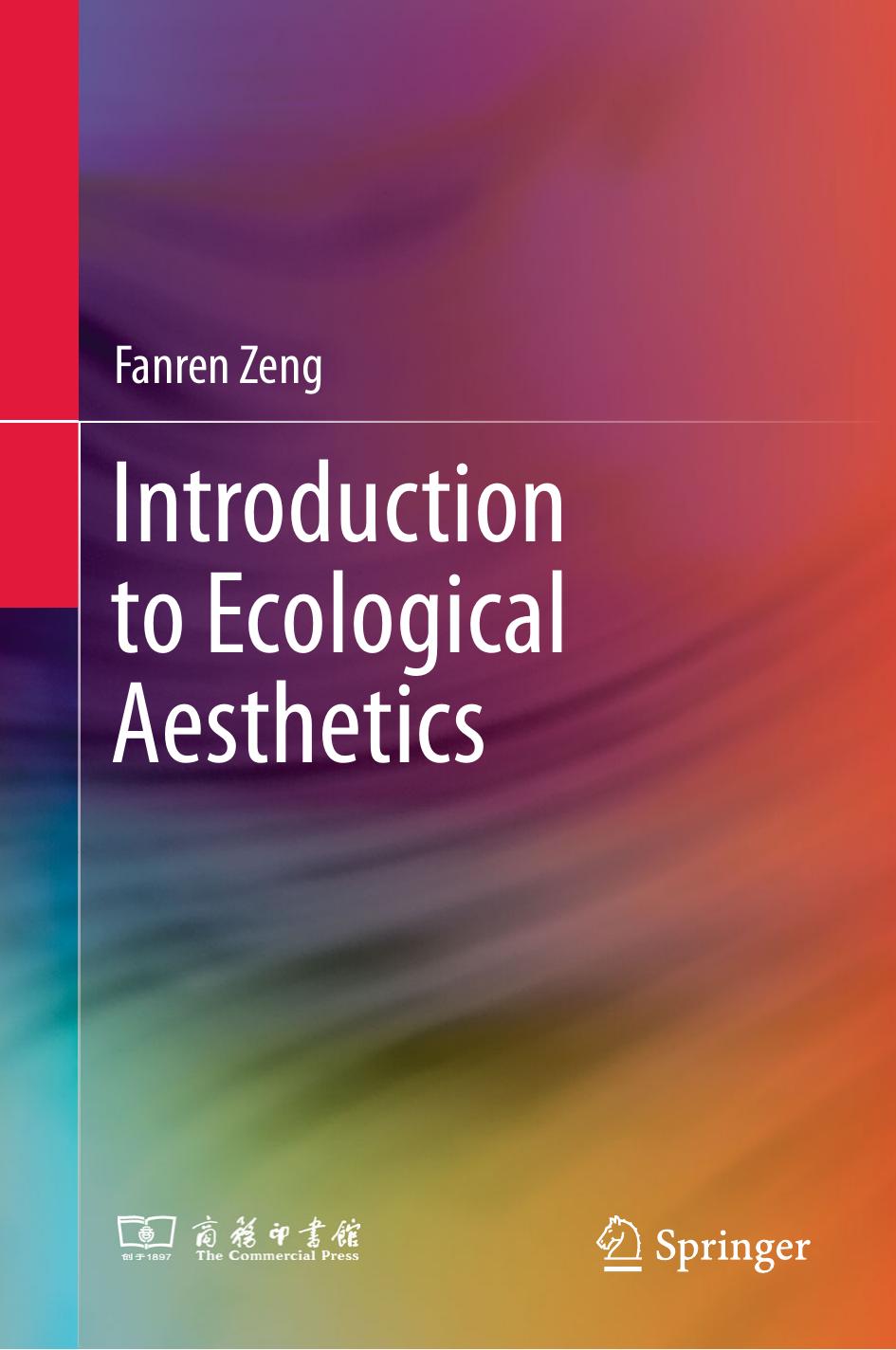Introduction to Ecological Aesthetics by Fanren Zeng

Author:Fanren Zeng
Language: eng
Format: epub, pdf
ISBN: 9789811389849
Publisher: Springer Singapore
The trunk of the oak tree grew a hundred spans around and as high as a hill; the tree’s shade could cover 1,000 heads of cattle, and the number of people who came to see it were as many as at the market. But its wood is neither good for boat building nor for coffin making or any other appliance, much less for doors and bridge posts, so the mechanic did not think of it as material, but as a useless tree. The spirit of the oak tree believes the mechanic views himself from the perspective of how he sees those “ornament-trees,” by which he means “hawthorns, pear trees, orange trees, pummelo trees, gourds and other low fruit-bearing plants” whose wood is useful or whose fruits are edible, but once the fruits ripen, they are picked, and when picked off the trees, the trees are injured; the tree trunks and tree branches, by becoming useful materials, saw down and hack apart the trees which they were. These ornament trees cut their own lives short because they are useful to people, namely “do not complete their natural years but die halfway.” The oak tree however can grow to flourishing heights precisely because of its total uselessness, which for that reason, becomes the tree’s “greater usefulness.” What the oak tree tells us is “all things are so.” Humans and trees are equally “things,” and “comparing things” with the “useful” and “useless” like the mechanic, one could say, makes you a “useless man near death.” This fable raises several such questions: first, it raises the idea of things, specifically natural things, having a greater usefulness in being totally useless. What is said to be totally useless is said with respect to common sense utilitarian criteria and the cognitive perspective of judging the value of things, and “greater usefulness” refers to judging the value of things from the perspective of eco-ontology, which argues that anything, and specifically any natural thing has its own “intrinsic value.” This is fully consistent with Laozi and Zhuangzi’s viewpoints concerning the omnipresence of Dao pervading all things; second, it proposes Daoism’s eco-ontological philosophy of “doing nothing and leaving nothing undone” in “being useful for nothing in particular but for everything in general.” Only by being useful for nothing in particular can something be useful for everything in general. If something seeks intentionally to be useful, it will on the contrary become useless. This cautions humanity, that if we overly pursue the economic and utilitarian aims of “usefulness,” overfell forests, abuse resources, and pollute the environment, we will ultimately reach the point of exhausting all resources and degrading the environment into a totally useless one; third, it raises the issue of equality between humans and other things. Human beings and other natural beings are equally beings, and are equal in this sense, so we cannot use the criteria of useful and useless, or how much or how less useful to demand something else or select something else. In actuality, this
Download
Introduction to Ecological Aesthetics by Fanren Zeng.pdf
This site does not store any files on its server. We only index and link to content provided by other sites. Please contact the content providers to delete copyright contents if any and email us, we'll remove relevant links or contents immediately.
How to Do Nothing by Jenny Odell(2651)
A Forest Journey by John Perlin(2590)
The Plant Messiah by Carlos Magdalena(2458)
Babylon's Ark by Lawrence Anthony(2077)
Energy Myths and Realities by Vaclav Smil(2069)
The ESV Study Bible by Crossway Bibles(1956)
Abbey in America by Murray John A(1810)
Fatal Storm by Rob Mundle(1793)
Witness Tree by Lynda V. Mapes(1698)
Shadows on the Gulf by Rowan Jacobsen(1520)
Client Earth by James Thornton(1509)
Brokeback Mountain by Annie Proulx(1474)
Coming Back to Life by Joanna Macy(1468)
Water Rights and the Environment in the United States by John Burch(1416)
Cosmos by Carl Sagan(1405)
Ten Billion by Stephen Emmott(1385)
Mycelium Running: How Mushrooms Can Help Save the World by Paul Stamets(1290)
The overachievers by Robbins Alexandra(1287)
The Uninhabitable Earth by David Wallace-Wells;(1197)
